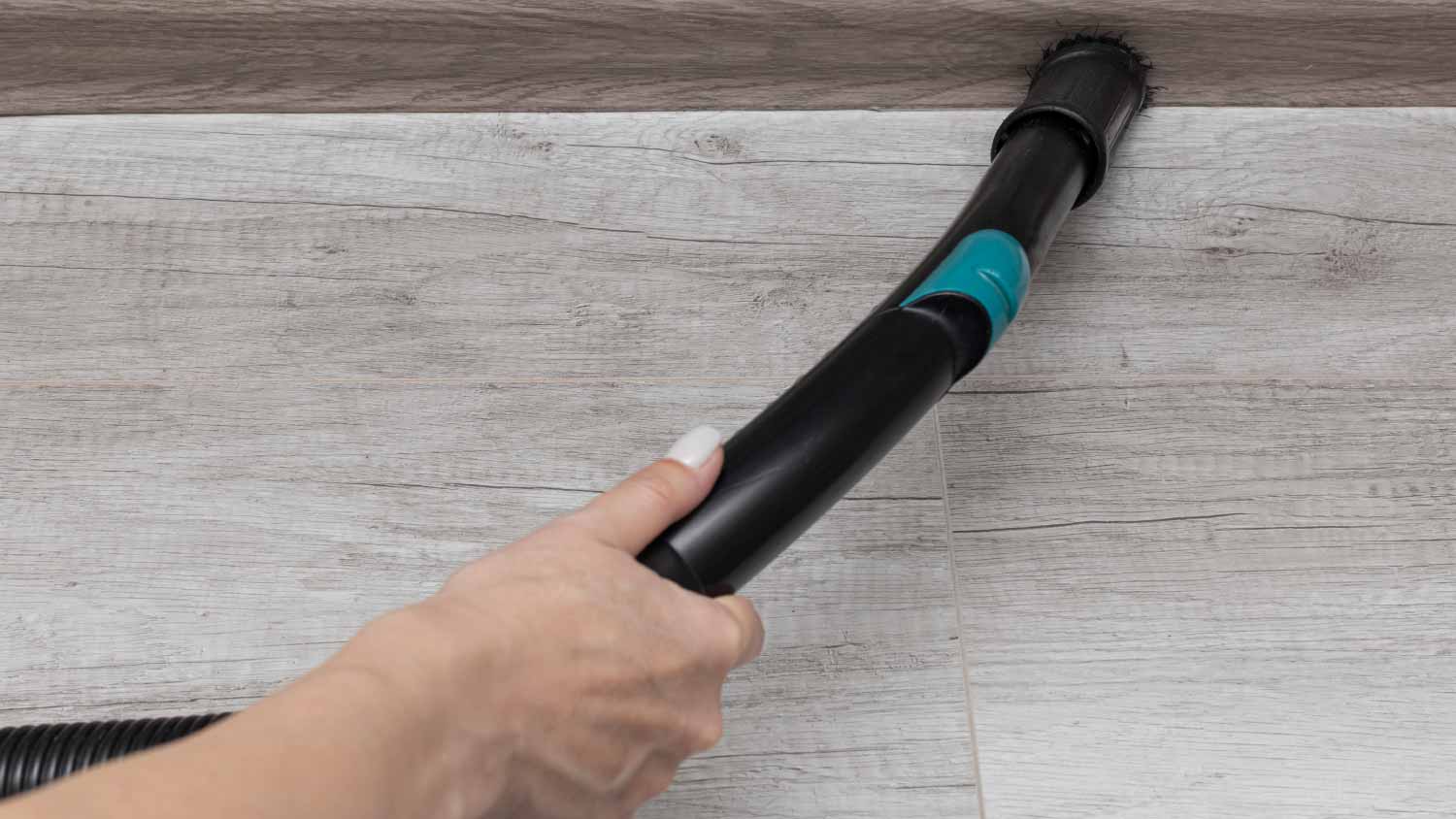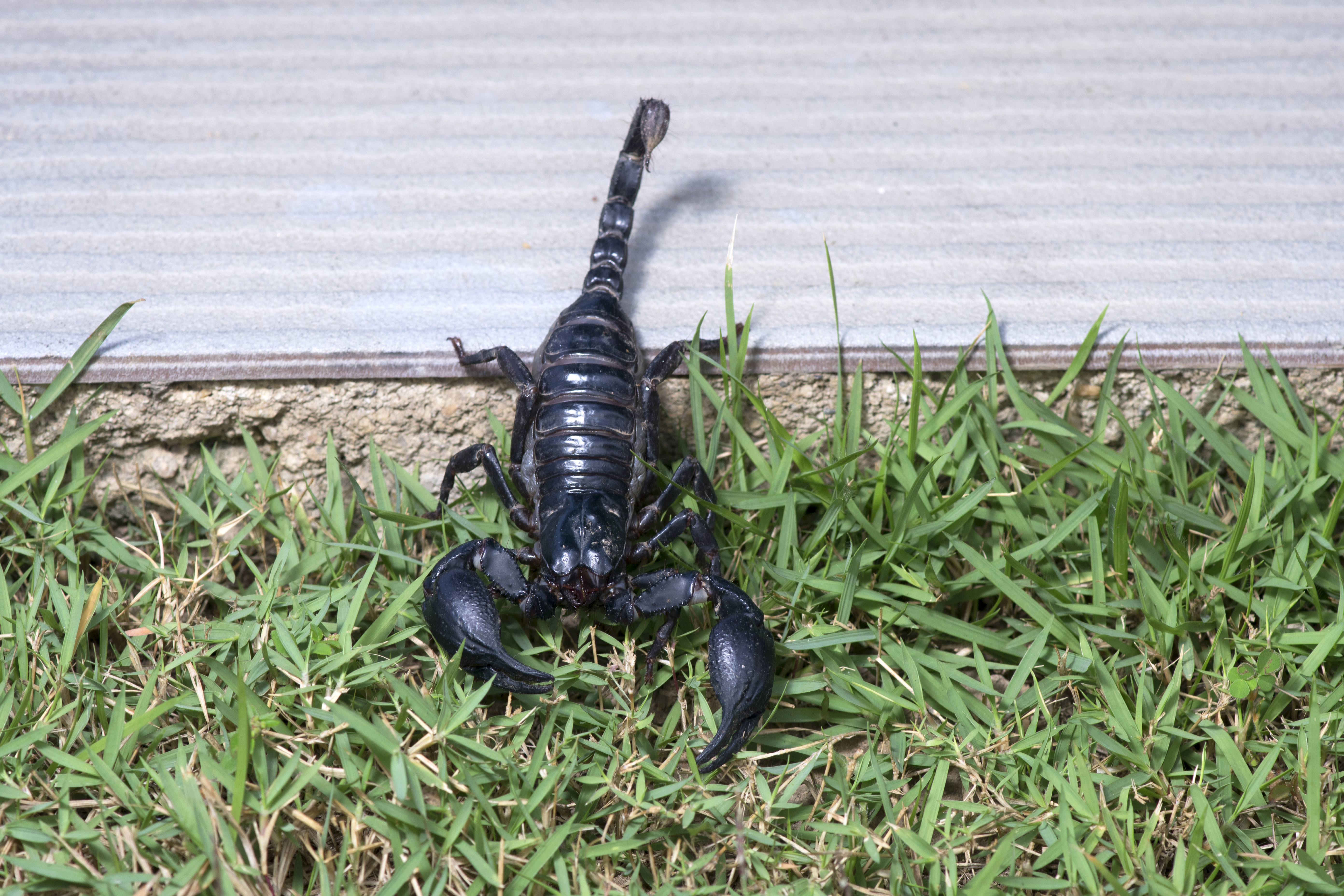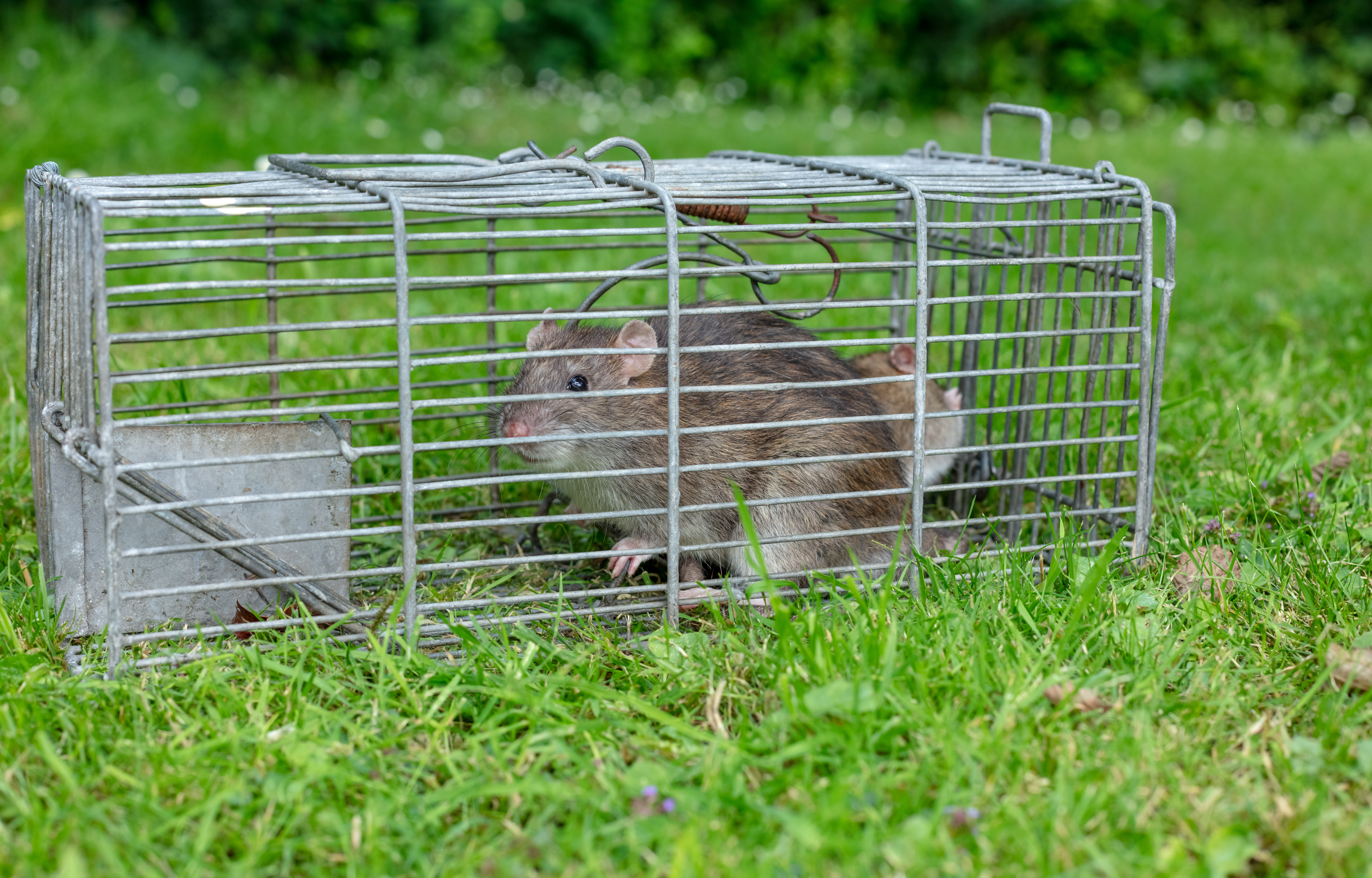
Keep your home free of termites and the damage they do. Learn more about inspections, infestations, and the average cost of termite treatments.
Wave goodbye to these pesky arachnids


While hiring a pro to get rid of spiders costs around $100 to $300 for quarterly visits, you should hire pest control if you spot a dangerous species like black widows.
An exterminator has stronger insecticides that provide longer-lasting protection.
A spider control expert can close any gaps, remove webs and egg sacks, and treat wall voids to prevent an infestation.
Spiders, with their intricate webs and insect-heavy diet, are a vital part of our ecosystem. However, when they venture inside your home and set up camp behind your favorite reading chair, they can trigger a range of emotions from mild discomfort to full-blown arachnophobia. If you're sharing your living space with these eight-legged creatures and are determined to regain your spider-free sanctuary, learn how to get rid of spiders and prevent their arrival.
There are a few primary motivations that may attract spiders to your living space, and recognizing them can help you develop effective prevention strategies.
One of the most common reasons spiders enter homes is for prey. Flies, mosquitoes, and other small creatures can provide an easy meal for spiders, so reducing insect populations will limit your home’s appeal to arachnids.
Spiders may enter homes during seasonal transitions. For example, as temperatures drop in the fall, these creatures may seek shelter indoors to escape unfavorable outdoor conditions. Certain spider species may enter homes to mate or lay eggs, which can be especially prevalent during late summer and early fall.
Cracks and openings in a home's exterior can make it easy for spiders to enter. Plants, trees, or other structures touching a home may also serve as a bridge for spiders, facilitating their entry. Quiet, undisturbed spaces like a cluttered or neglected attic are also ideal habitats for spiders.
Homes located near natural surroundings such as wooded areas, fields, or bodies of water may be more likely to attract spiders, as these creatures may wander indoors more easily. If a home has previously experienced a spider infestation, it's possible that eggs or spiderlings may remain hidden and hatch later, leading to recurring issues.
If a home has outdoor lighting near windows, this can draw spiders indoors. The light may attract insects, which in turn attracts spiders looking for a meal.

The most obvious sign of a spider problem is frequent sightings of the creatures, but two other signs could indicate you're on your way to an infestation. Spider webs, even if a spider isn't present, could signal an issue. Spiders weave webs to capture prey, so if you're spotting an array of webs at your house, this may be a sign they are inhabiting the area. Webs often appear in crevices such as window frames and are usually found in more secluded areas of the home, like an attic or basement.
You may also find egg sacs near the webs, which are small and have a silk-like quality. Finding even just a few sacs is cause for concern, but if you're seeing multiple, it's a sign of a rapidly growing spider population. If this occurs, it's best to address the issue quickly to avoid letting the spiders multiply.
Before you go killing spiders, you may want to research the type of spider present. Some harmless spider species could be effective pest control for other insects. If the sight of a common house spider doesn’t give you the heebie-jeebies, consider keeping a few around to take care of flies, moths, roaches, and more. However, other types of spiders can have a poisonous bite: If your home has these species, your safest option is to hire pest control to handle it.
To eliminate spiders from your abode, a blend of preventative tactics, natural solutions, and, in extreme cases, chemical interventions can be used.
You can use sticky traps or glue boards to catch spiders. Place these strategically along the walls, corners, and near other known entry points. If you have children or pets, opt for non-toxic, humane spider traps to keep everyone safe.
If you have a severe spider infestation, consider using spider-specific insecticides as a last resort. Be sure to follow the manufacturer's instructions for safe use. While you can do this on your own, especially if you have some prior experience, it's not a bad idea to contact a professional pest control service.
Spider catchers are handheld tools designed to trap and release spiders without harming them. They’re a great choice for anyone who prefers a humane and non-toxic approach to pest control. These tools have long handles and soft bristles or grabbers, allowing you to remove spiders from hard-to-reach areas like ceilings or corners without getting too close. They’re especially useful for people who want to avoid having to kill the spider or using toxic sprays around their home.
Bug barriers are physical or chemical deterrents that prevent spiders and other pests from entering your home. One example of this treatment strategy is using sealant along baseboards, windows, doors, and wall cracks to block entry points.
You can also use pest barrier sprays around the perimeter of your home to create an invisible border that spiders won’t want to cross. For added protection, install door sweeps and window screens to keep bugs out, eliminating the food source that attracts spiders and entices them to take up residence in your home.
There are several natural remedies you can try that might help deter spiders, but they’re not proven to solve your problem. Dilute essential oils such as peppermint, tea tree, and lavender with water and spray it around entry points. Or mix equal parts of water and white vinegar to spray instead. Some homeowners have success with placing chestnuts in the corners of rooms to repel spiders.

To keep spiders out of your home, utilize these proactive measures. While you may still notice spiders creeping through here and there, their presence will be greatly reduced if you prioritize these strategies.
Continue with regularly cleaning and vacuuming your home to remove spiders, their webs, and potential food sources.
Inspect your home for gaps, cracks, and holes where spiders can enter. Seal these entry points with caulk or weather stripping to prevent spiders from getting inside.
Install or repair window and door screens to eliminate an entry point.
Trim any vegetation that may be touching or hanging over your home. Bushes and trees are commonly used as bridges by spiders.
Use lower-intensity outdoor lighting as it can effectively reduce the number of flying insects that draw spiders towards your house.
Continue monitoring your home to quickly assess your preventative efforts and increase them, if necessary.
Invest in periodic pest control visits, which average between $40 and $70 for monthly visits or $100 and $300 for quarterly visits.
If you're facing a minor spider issue with a harmless species, ridding your home of these pests is something even new homeowners can manage on their own—or just leave them be. However, if you see more than three spiders daily and find egg sacs, you're likely facing an infestation. If you try DIY solutions but find they aren't effective, hiring a local spider exterminator is the most effective solution. Skip right to hiring pest control if you spot a dangerous species to keep you and your family safe.
From average costs to expert advice, get all the answers you need to get your job done.

Keep your home free of termites and the damage they do. Learn more about inspections, infestations, and the average cost of termite treatments.

Termite damage repair costs can vary greatly based on the damage severity and location. Learn more about the associated costs of this project with our guide.

Professional spider exterminator costs vary depending on the infestation size, visit frequency, and methods. Use this guide to budget for speedy spider removal.

Scorpions are creepy pests that you definitely don’t want near your living space. Find out how to keep scorpions away from your house.

Is it a common house spider or a brown recluse? Learn how to identify a brown recluse spider so you know how to handle it.

Noticing a growing number of rats calling your yard or garden home? Here are your best options to deal with them.